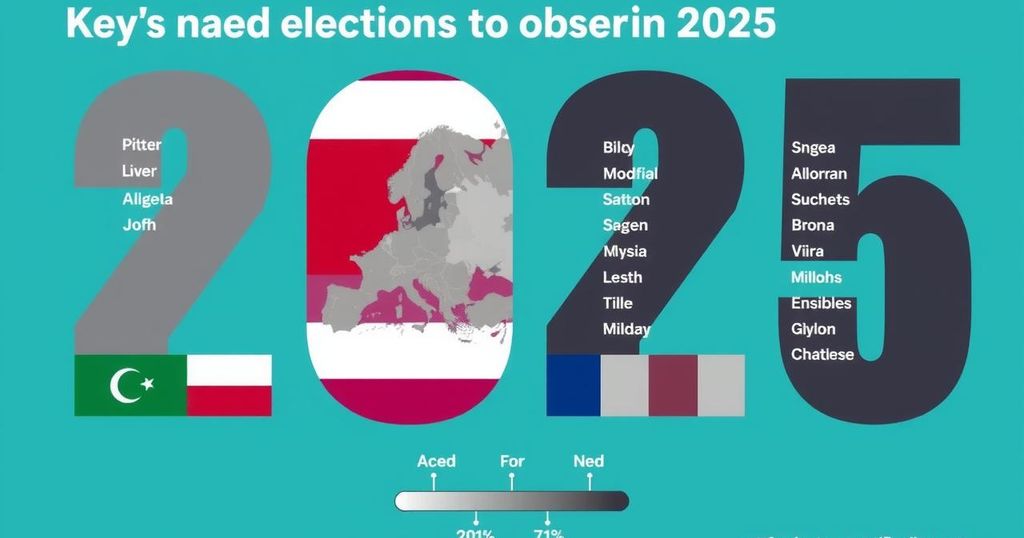Several pivotal elections are slated for 2025 in Belarus, Germany, the Philippines, Canada, and Chile, reflecting significant political shifts. In Belarus, Lukashenko is expected to continue his authoritarian reign. Germany faces early elections amid a coalition crisis, while the Philippines’ midterms function as a referendum on Marcos’ leadership. Canada may see an early election amid Trudeau’s plummeting approval ratings, and Chile’s presidential election may lead to a significant opposition victory, accentuating the need for political stabilization in these nations.
In 2025, several critical elections will take place in five nations, each reflecting significant political dynamics. Belarus will witness Alexander Lukashenko seeking his seventh term in a landscape devoid of genuine opposition. Germany is poised for early elections due to a fractured coalition government led by Chancellor Olaf Scholz, confronting economic and geopolitical challenges. The Philippines will engage in vital midterm elections, which will serve as a referendum on President Ferdinand Marcos Jr.’s governance. Canada may also see a surprise election, as Prime Minister Justin Trudeau grapples with low approval ratings. Finally, Chile will hold presidential elections likely resulting in a runoff, following President Gabriel Boric’s term limitations amidst rising crime and political discontent. Each of these elections signifies pivotal moments for their respective countries as they navigate contemporary issues such as inflation, political legitimacy, and party dynamics.
As the world continues to grapple with various crises, 2025 marks a significant year for political shifts in several countries. The backdrop for these elections includes an ongoing struggle against inflation, a rise in populism, and the lingering effects of international conflicts. Understanding the political climate in Belarus, Germany, the Philippines, Canada, and Chile provides insights into potential future directions for these nations, shaping their political landscapes amid economic and social upheaval.
The five elections to monitor in 2025—Belarus, Germany, the Philippines, Canada, and Chile—highlight a diverse array of political contexts and challenges. Each election bears the potential for significant change, whether it is the consolidation of power, shifts toward the right, or reflections of public sentiment on current governance. These electoral contests will not only shape domestic policies but also impact international relations and global political dynamics.
Original Source: theconversation.com






